Housekeepers, gardeners, street vendors, personal chefs, caretakers, landscapers, drivers or other service workers with similar roles who were faced with financial setbacks due to the recent Los Angeles County wildfires could qualify for monetary assistance.
On Tuesday, the Los Angeles City Council approved a $25,000 relief fund to help northeast San Fernando Valley residents recover from the devastating wildfires, which collectively have scorched more than 37,000 acres and destroyed thousands of homes, small businesses and other historical buildings.
The relief fund, which was introduced by Councilmember Imelda Padilla, is targeted to people affected and living in Council District 6. More than 70% of the District 6 population is Latino.
One of the areas closest to the numerous fires and evacuation orders was Council District 6, which encompasses the communities of Arleta, Lake Balboa, North Hollywood, North Hills, Panorama City, Van Nuys and Sun Valley.
The official name for the fund is Council District 6 Wildfire Relief Fund for Informal Service Workers,” addressing income losses faced by street vendors, housekeepers, gardeners, personal chefs, caretakers and other self-employed workers, many of whom are Latinos and who have faced significant challenges in accessing federal or state emergency resources due to their immigration status or other circumstances.
Latinos continue to be a local workforce throughout L.A. County, where 85% of individuals employed as household workers are Latino.
This is just one of the many efforts being made at the city level to provide some relief to families affected by the fires, some of which are still burning.
“Our local economy is deeply interconnected, and disasters like these ripple across the city, impacting even those miles away,” Padilla said. “Informal service workers—housekeepers, gardeners and caretakers—are vital to our communities, yet they often face unique challenges in recovery. Without targeted support, these workers risk falling through the cracks, and we must act to prevent further hardship.”
At least 35,000 jobs held by Latinos were at risk of temporary or permanent displacement due to the wildfires, according to a report published last week by the UCLA Latino Policy and Politics Institute.
Although Latinos comprise just 23% of the population across the three evacuation zones (Eaton, Palisades and Hurst), they account for 36% of all workers in those areas.
As stated by the report, the disparity is particularly striking in the Palisades Fire zone, where Latinos hold 34% of jobs despite representing just 7% of the population. Similarly, Latinos account for 33% of residents but 47% of workers in the Hurst Fire zone. The comparable percentages in the Eaton Fire zone are 27% and 35%.
To manage the program and the funds, the city will work with the Initiating Change in Our Neighborhoods Community Development Corporation (ICON CDC), an organization active since 2002 whichprovides free services to low- and moderate-income entrepreneurs and small-business owners through the Los Angeles Business Source Centers in the North and South Valley regions.
ICON CDC is set to deliver direct cash aid to informal service workers and small business owners through one-time payments. Individual grant amounts will be $250 and $500 for families. The grants will be awarded on a first-come, first-served basis, as funds allow.
According to the ICON CDC, to be eligible for funding, community members must be a Council District 6 resident/business and meet all of the following qualifications:
Be an informal service worker (street vendor, gardener, housekeeper, caretaker or other self-employed worker)
Have suffered a loss of income or property/belongings due to wildfires
Live in one of the following zip codes: 91352, 91331, 91343, 91402, 91401, 91405, 91406 or 91411
“A stark reminder that our local economy is interconnected means a disaster in one part of the city still affects the most vulnerable in others,” the motion reads. “Failing to support this critical sector can lead to CD-6 residents being unable to pay for expenses that can lead to homelessness, evictions or food insecurity.”
To learn more about the program and see if you qualify, click here.

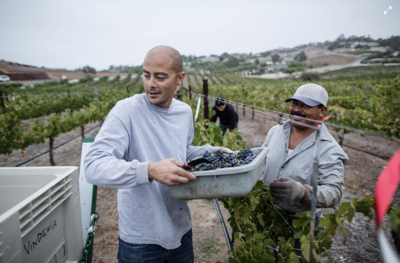
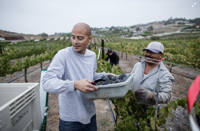

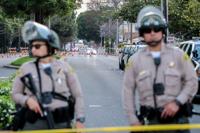

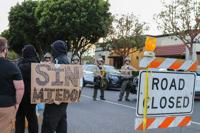

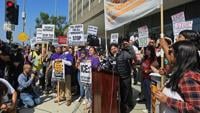

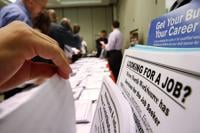
(0) comments
Welcome to the discussion.
Log In
Keep it Clean. Please avoid obscene, vulgar, lewd, racist or sexually-oriented language.
PLEASE TURN OFF YOUR CAPS LOCK.
Don't Threaten. Threats of harming another person will not be tolerated.
Be Truthful. Don't knowingly lie about anyone or anything.
Be Nice. No racism, sexism or any sort of -ism that is degrading to another person.
Be Proactive. Use the 'Report' link on each comment to let us know of abusive posts.
Share with Us. We'd love to hear eyewitness accounts, the history behind an article.